'Dementia is going to be a huge challenge for hospitals, doctors, nurses, physiotherapists, health workers and family members.'
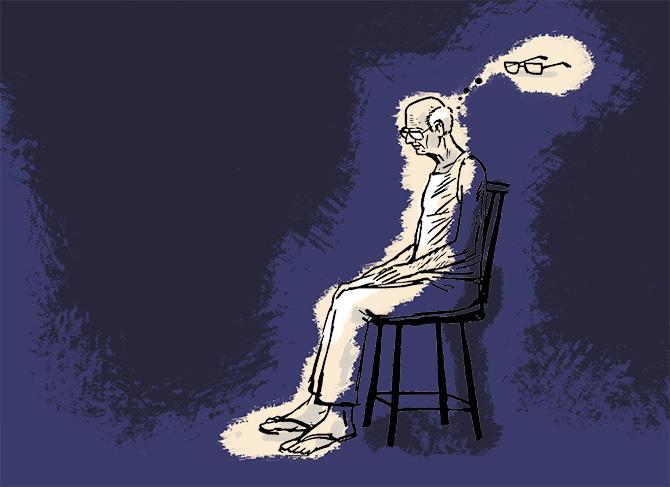
"We are looking at 5 to 7 million people with dementia in India," Dr Sridhar Vaitheswaran, consultant psychiatrist and head of the DEMCARES project at the Schizophrenia Research Foundation in Chennai, tells Shobha Warrier/Rediff.com.
A report says that people living with dementia has doubled from 1990 to 2016 globally. In fact, an increase of 117%. Is it because the world is ageing that the number has increased exponentially?
Yes. As the population gets older, all the conditions that are associated with old age increase including dementia.
Is longevity the only reason?
No, there are a variety of reasons. The primary one, of course is that we are better at treating infections and other diseases which makes people live longer.
For the first time in the history of humankind, there are more older people than young ones. Right now, we have the maximum number of older people living on earth.
Even in India, if you look at the number of people above the age of 60, it is anywhere between 10 to 13 crores! It is also projected that we will have 14 crore older people by 2021 and by 2025, almost 30 crores.
To give you an idea, the population of Chennai is around 1 crore and so, if you were to bring in all the people above 60 in one place in 2021, you will need a place 14 times the size of Chennai!
Would you say as our population is ageing, dementia is going to be one of the major challenges for the state, doctors, society and families?
Absolutely. Anybody and everybody who is going to be dealing with older persons should be aware of the problems they would be facing starting with public transport, public services like post offices, banks, etc as we will have more and more elderly people accessing these services.
Yes, this is going to be a huge challenge for everybody; hospitals, doctors, nurses, physiotherapists, health workers and family members. Above all, all of them should be aware of this reality.
What exactly are the challenges for the State and the community?
First and foremost, there is very little awareness about dementia. So, there are multiple issues.
It is not uncommon to see families bringing in patients with advanced Dementia. As the disease advances, patients will have more and more problems. Only then the families realise that it is an issue that has to be treated.
Unfortunately, response to treatment is not fantastic at a very advanced stage. It is not that we cannot do anything but it is better the patients are brought in earlier; as soon as the family realises that they have something like a memory issue. But families don't bring in patients in the initial stages.
Due to lack of awareness?
Yes. Even among the educated population, families do not realise that the issues are because of dementia. Even when an elderly person complains of lack of memory or lack of concentration or direction, families brush it aside as old age.
There is also a negative image of dementia, and majority of the people think they can do nothing about dementia.
Can dementia be arrested or postponed or treated?
There is good treatment available which can slow down the advancement of dementia.
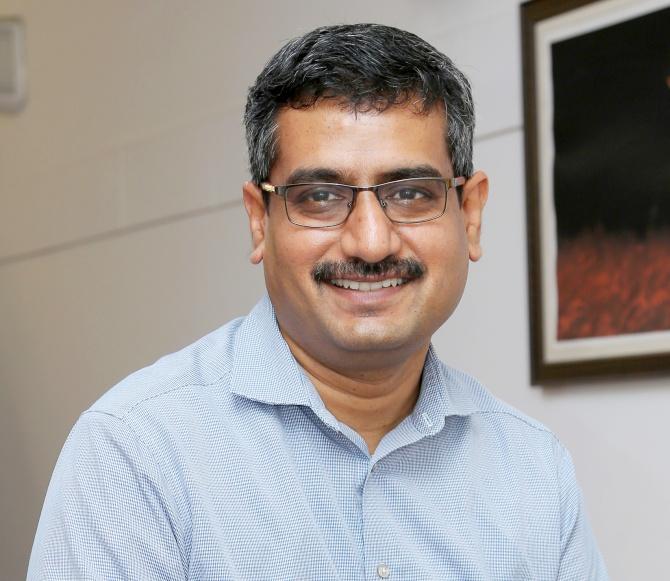
Can we say the treatment is palliative?
No. Palliative care is given towards the end of the life. For example, in the case of cancer, palliative care is given for 6 months to one year.
But when you are dealing with someone with dementia, you are not talking about such a short time period. The average age of survival of a person from the time of diagnosis of dementia till the end can be 10 years. You cannot have palliative care for 10 years.
So, what we are talking about is managing the disease. Yes, you need palliative care towards the end of life in dementia too. But then, that is towards the last stages.
In the early stages of dementia, a person can lead a very successful life and carry on with their day to day activities without any major problem at least till the mild and moderate stage.
With medicines?
With medicine and other treatment. There are also non-medicine treatments available which will help the patient continue to function as well as they can for a long period of time.
What are the symptoms that the families and patients should look for?
There are multiple causes for dementia depending on what type you have. The most commonly occurring symptom is memory loss.
You get more forgetful than you normally are, like forgetting your spectacles, wallet, key, etc. It doesn't mean that everybody who forgets has dementia.
The other most important thing is you may not be able to do things you were doing before like going to the bank or any other routine you have been regularly doing.
What I mean is you have trouble doing the routine activities which you were doing before. This is an early indication of something gone wrong.
It is necessary that you get proper medical help at the right time.
There are many conditions which may look like dementia, but may not be dementia. It may be depression or hormonal disorder or a deficiency or some other clinical problem. If treated early, you can have complete reversal of the symptoms.
If it is dementia, and it is identified early and have the right treatment early on, patients can continue to function normally for a very long period of time and reduce the burden on the family.
Do you think more than the person, people around her/him should notice the symptoms early on?
Of course. Though it can happen both ways. Sometimes, the person herself/himself may also be aware, but it is often others who notice the symptoms.
Generally, by what age the symptoms appear in people?
Usually, dementia is common among people above 60 or 65 particularly on those who have high blood pressure or heart disease or any other chronic medical problem. They have the higher risk of developing dementia. So, they should be more aware of the disease and the symptoms.
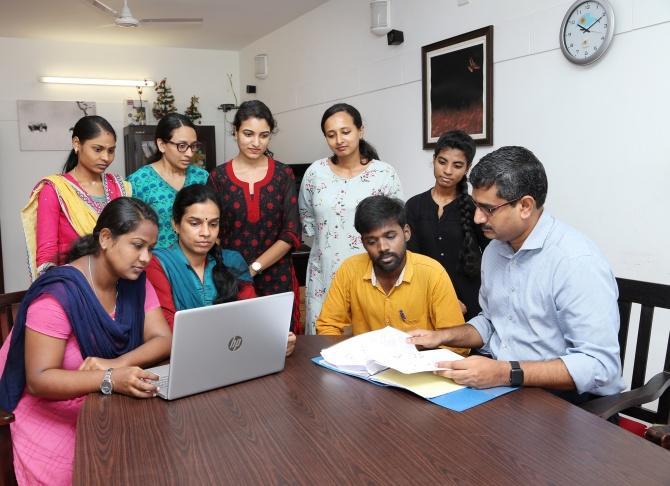
Is there any difference between Alzheimer's disease and dementia? Are these two diseases connected?
Dementia is an umbrella term like fever. But there are different types of fever depending on the causes. Similarly, there are different causes and types of Dementia. And Alzheimer' is a type of Dementia and one of the most common types of Dementia. There are other types of Dementia also like vascular dementia, dementia in Parkinson' disease, etc.
Can dementia be prevented?
To an extent, yes. We talk about cancer prevention and the simple analogy is, smoking leads to cancer. But if you don't smoke, there is less risk of you getting cancer. It doesn't mean that you will not get cancer. It is not that non-smokers will not get cancer.
Following the same principle, if you do all the right things, you reduce the risk of getting dementia.
Doing right things means?
Generally, all the things that is good for the heart is also good for the brain. We all know about heart disease and what you should do to prevent it.
So, you follow the same principle; like exercise and proper diet, a healthy lifestyle, not smoking and drinking alcohol. Whatever causes heart disease also contributes to dementia.
Like I mentioned earlier, if you have high blood pressure, if you had a heart surgery and if you are diabetic, you run the risk of getting dementia. So, all these conditions have to be managed well as they increase the risk for dementia.
You had a global conference on dementia in Kochi recently. Was it to create awareness that it was conducted?
Yes. Not just the conferences, we need to have a lot more awareness programs at the grassroot level. We have to bring it to the public consciousness using TV, radio and social media.
At the conference, it was said that caregivers were the most sufferers taking care of people with dementia, working for more than 10 hours a day. In what way can this situation be addressed?
There are multiple ways in which we can address this.
Because of lack of awareness, people seek help much later, when the problems become really bad. If they can identify the symptoms much early, we can prevent so many problems.
One of the most common problems you see at a later stage is, wandering. People with dementia tend to wander. They become restless and agitated. They lose the sense of direction even within the house; they may not know where the bathroom is, they may not know where the kitchen is.
In the very advanced stage of dementia, you see them quite often inappropriately urinating at all places. That is because they cannot identify where the bathroom is.
Many people come for help when the patients reach such an advance stage. By this time, it becomes very difficult to treat and it is difficult for the family members also.
To prevent them wandering away, you can use simple techniques like locking the gate. If it becomes too restrictive for the person, you can use a GPS tracker on the person.
And within the house, if they have difficulty in finding places, signages can help. Or leaving the toilet door open or leaving the toilet light on at night.
Dementia patients also fall down quite often. By making small changes in the house, you can prevent all these problems. If you make the changes earlier on, it will be easier for the family members and patients.
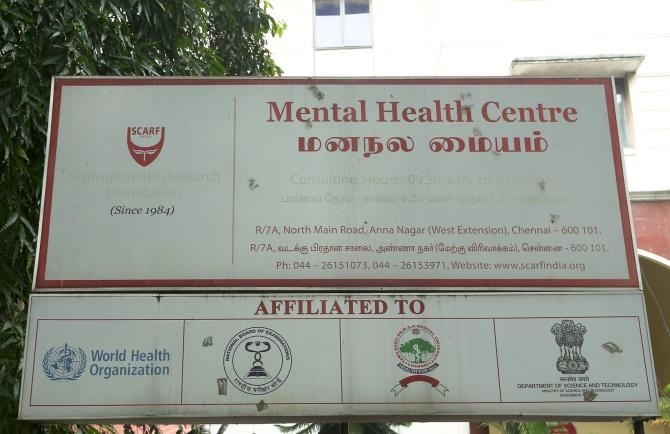
Is taking care of dementia patients tough for caregivers?
Any illness is tough for caregivers. Yes, taking care of dementia patients is a challenge. On an average, a family spends 10 to 10 1/2 hours looking after someone with dementia which is more than a full-time job.
The University College in London has developed a programme called START that helps reduce depression and anxiety among the family carers of a person with dementia. This intervention has been found to be very effective in the UK. It has helped improve the quality of life of the caregivers and lessen the burden on them.
It is important that we address this particular issue also as in the longer term, it can have a huge effect on the country's economy. In the next few years, we are anticipating a large number of people with dementia in India.
It means we are going to need as many or more number of young caregivers. It can create a huge problem for the family and the country.
So, we are going to adapt START and test it for use in India, to begin with in Chennai, Delhi and Mysore.
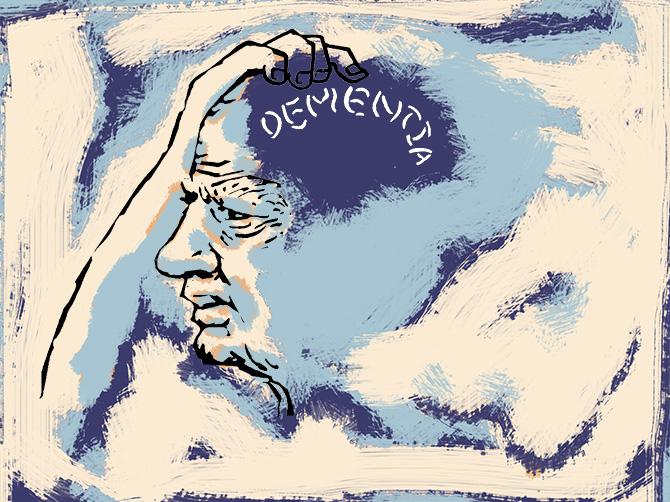
At the conference, you spoke about humanoid robots that are used in Japan to take care of people with dementia. In a highly populated country like India, should we make use of people or use robots?
There is no one solution for this problem. Use of robots was necessary in Japan because of the huge demographic shift that has taken place in the Western world and Japan. There are more older people than younger people there.
India will reach that crisis point in 100 to 150 years. Then, we will not have enough human resources to look after people with dementia.
Right now, we are looking at 5 to 7 million people with dementia in India. It is going to reach 15 million by 2050 which is a huge number. Demand for support also will rise then. So, you have to develop human resources like an army of trained caregivers to address the issue. They alone may not be adequate.
We have to also take the help of technology and one technology we can explore is the use of robots. In the longer term, when we have more older people than younger ones, we have to depend on the use of technology.
I read about a study conducted at UCLA which says that the number of people with dementia is low in India because of the amount of turmeric we use in our food preparation. Can turmeric reduce the risk of dementia?
Maybe. Some studies say that the use of turmeric or coconut oil or the natural condiments we use in our food can have some positive effect. There are some other studies that say that a Mediterranean diet can prevent dementia because people in Mediterranean countries have the lower risk of developing dementia.
Some studies show that pollution runs the risk of increasing heart disease, brain disease which will in turn lead to dementia.
It is not just diet that contributes to dementia, there are other factors also like the levels of stress people experience.
Another major factor that contributes in India to dementia is the use of alcohol. From the public heath perspective, use of alcohol needs to addressed urgently.
At the conference, there was a talk by Dr Hemant Bhargav on the role of yoga in treating dementia in the early stages. Is yoga effective in treating dementia?
It should be. I am not aware of any study which talks about the role of yoga in preventing dementia. but there are a lot of good studies on how yoga and meditation help in reducing the instances of heart diseases.
Similarly, I would anticipate that yoga would also help in treating dementia. Once someone develops dementia, this can slow down the disease progression because yoga reduces the stress level and other emotional issues, and improve the quality of life which is very important.
You said by 2050, India is going to have 15 million people with dementia. Because of lack of awareness, is the situation going to be alarming?
Yes. It is going to be a major problem for the country. We have to make a lot of noise as we need to make everyone aware. We have to see that we don't miss the boat.
Yes, in future, this will be a major issue if we don't address the problem now.











